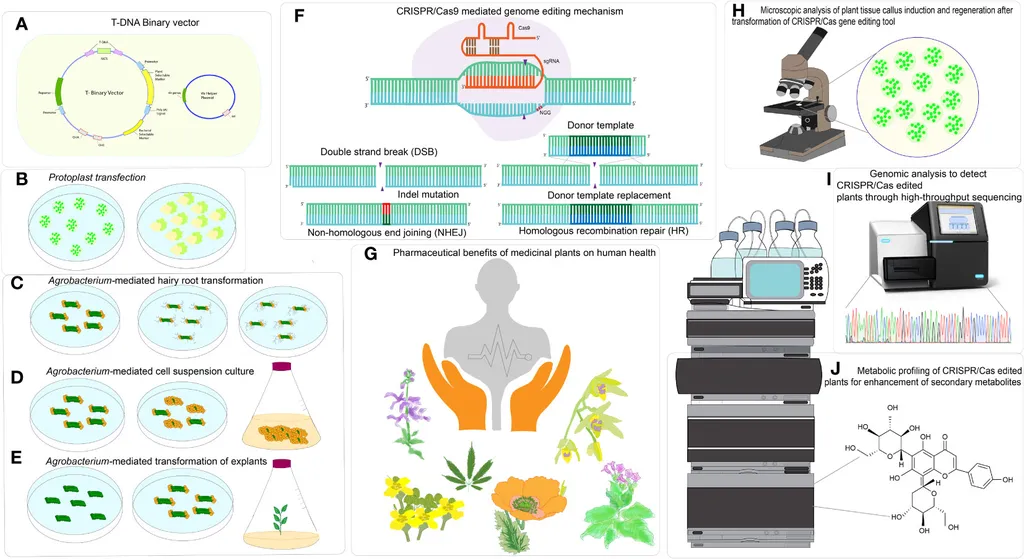In the ever-evolving landscape of agricultural biotechnology, a groundbreaking study led by Wajid Zaman from the Department of Life Sciences at Yeungnam University in South Korea is shedding new light on the potential of Transcription Activator-Like Effector Nucleases (TALENs) to revolutionize the production of secondary metabolites in plants. Published in the journal ‘Plants’ (which translates to ‘Plants’ in English), this research opens up new avenues for enhancing the yield of valuable compounds used in medicine, agriculture, and beyond.
Secondary metabolites, such as alkaloids, flavonoids, and tannins, are not just essential for plant survival but also hold significant value for human health and industrial applications. However, their production is often limited by genetic and environmental constraints. Enter TALENs, a precision genome editing tool that promises to unlock the full potential of these compounds.
“TALENs offer a level of specificity and efficiency that can target and modify genes involved in the synthesis of bioactive compounds,” explains Wajid Zaman, the lead author of the study. This precision is crucial for enhancing the production of secondary metabolites, which are often species-specific and influenced by a complex interplay of genetic and environmental factors.
The study delves into the mechanisms underlying TALENs, comparing them with other genome editing tools like CRISPR/Cas9. While CRISPR/Cas9 has garnered significant attention, TALENs present unique advantages, particularly in their ability to induce genetic variation and improve stress tolerance in plants. This makes them a valuable tool for plant breeders aiming to develop crops that are not only high-yielding but also resilient to environmental stresses.
One of the key applications highlighted in the research is the modification of pathways responsible for the production of alkaloids, flavonoids, terpenoids, and phenolic compounds. These compounds have a wide range of applications, from pharmaceuticals to cosmetics and even biofuels. By enhancing their production, TALENs could significantly boost the commercial potential of medicinal plants and other crops.
“TALENs can facilitate hybridization and improve genetic diversity, which is essential for developing new plant varieties with enhanced traits,” adds Zaman. This capability is particularly relevant for the energy sector, where the demand for biofuels derived from plant-based sources is on the rise. Enhancing the yield and resilience of crops used for biofuel production could make a substantial impact on the industry’s sustainability and economic viability.
However, the study also acknowledges the challenges and limitations associated with using TALENs. While the technology shows great promise, optimizing it for commercial applications and integrating it with advanced biotechnological platforms remains a significant hurdle. The research identifies gaps in current knowledge, particularly regarding the integration of TALENs with multi-omics technologies and synthetic biology approaches.
Looking ahead, the findings suggest that TALENs offer sustainable strategies for producing high-value secondary metabolites. Future research should focus on optimizing TALEN systems for commercial applications and integrating them with advanced biotechnological platforms to enhance the yield and resilience of medicinal plants.
As the agricultural biotechnology sector continues to evolve, the insights provided by this study could shape the future of plant breeding and biotechnological applications. By harnessing the power of TALENs, researchers and industry professionals alike can look forward to a future where the production of valuable secondary metabolites is not only enhanced but also sustainable and economically viable.

